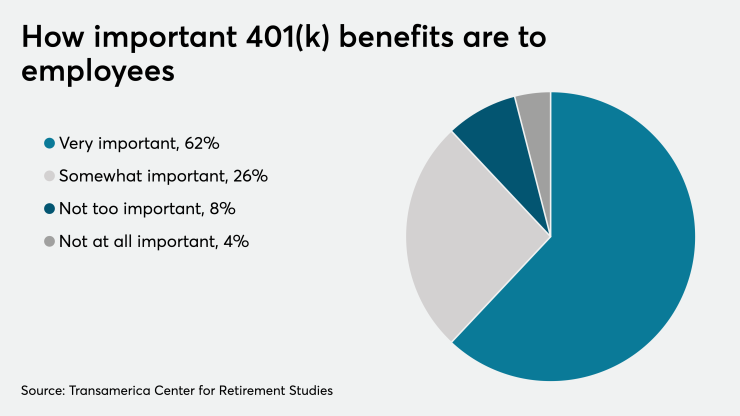The SECURE Act, which was signed into law in December, is the first major retirement plan legislation since the Pension Protection Act passed in 2006. The bill calls for many provisions, including allowing businesses to enroll long-term part time workers into 401(k) plans.
While the SECURE Act will extend access to defined contribution plans for many Americans, it poses significant implications and opportunities for recordkeepers handling retirement plans. Employees will likely need help understanding key retirement terms and industry nuances.
To support this transition, firms must enhance their enrollment processes and broaden their educational outreach by carefully guiding employees through enrollment — particularly at the crucial onset of participation.
It should come as no surprise that a mobile enrollment option will increase usage as well. Firms can offer assisted enrollment features that guide users to make the proper elections — though they must balance sufficient options with easily usable interfaces.
Studies show that too many options lead some to fear they will make the wrong decision, which could lead participants to delay decision-making or put it off all together. Further, using clear and logical language in this stage can provide participants with a groundwork of knowledge to build upon.
After participants enroll in a plan, it is important to encourage them to take control of their retirement savings without overwhelming or discouraging them. New participants may have low retirement readiness levels or low account balances.
Considering participants may not advance beyond homepage and plan dashboards, firms should properly personalize these homepages so they do not overwhelm new enrollees. For example, firms should ensure that contribution rate recommendations are reasonable; even if the individual ideally should increase their rate by 10%, a 2% increase could be a more approachable start.
Excessive recommendations could discourage individuals from trying to improve their situation at all.
See Also:
Many Americans are unaware that they are unprepared for their desired retirement lifestyles and need further guidance. According to a recent study by Corporate Insight, 25% of respondents claim that they are “very confident” in their ability to afford their desired retirement lifestyles. These high confidence rates may reflect employees’ tendency to disregard retirement industry guidelines, simply assuming they can maintain their desired retirement lifestyle.
For example, experts recommend total retirement plan contribution rates of at least 10%, yet 34% of respondents who indicated they are currently participating in a workplace retirement plan reported contribution rates between 4% and 6%. Further, 30% of respondents have less than $10,000 saved for retirement. Importantly, insufficient retirement education and financial literacy contributes to the confidence-preparedness gap in retirement planning.
The leadup to retirement involves far more than simply stowing away money in an employer-sponsored retirement plan or personal IRA. External factors like medical events, college tuition and saving for a home can influence an employee’s ability to save for retirement. Leading recordkeepers recognize the importance of providing holistic financial education; improving financial literacy can help participants understand their needs in retirement and how they align with their other financial goals.
Many employees do not feel confident in their knowledge of key retirement planning concepts, according to our study. A plurality of respondents reported they either had no understanding or were a novice regarding proper asset allocation (51%), retirement income (41%) and defined contribution plans (41%). Meanwhile, 48% of respondents get their financial information or news from online articles, suggesting that the digital content that recordkeepers provide could be crucial.
Recordkeepers should bolster their educational resources to help individuals gain a holistic view of their financial futures and determine their retirement goals. Further, firms should concentrate on digestibility and breadth of content to reach an audience of all acumen levels.






